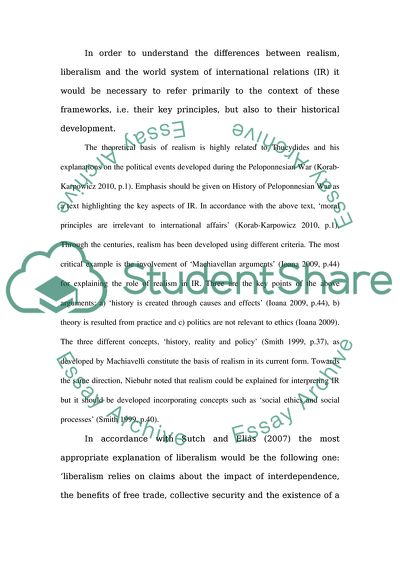Cite this document
(Realism, Liberalism and World System View of International Relations Essay, n.d.)
Realism, Liberalism and World System View of International Relations Essay. https://studentshare.org/sociology/1761752-discuss-the-most-important-differences-between-realism-liberalism-and-world-system-view-of-international-relations-with-respect-to-actors-motive-force-and-values
Realism, Liberalism and World System View of International Relations Essay. https://studentshare.org/sociology/1761752-discuss-the-most-important-differences-between-realism-liberalism-and-world-system-view-of-international-relations-with-respect-to-actors-motive-force-and-values
(Realism, Liberalism and World System View of International Relations Essay)
Realism, Liberalism and World System View of International Relations Essay. https://studentshare.org/sociology/1761752-discuss-the-most-important-differences-between-realism-liberalism-and-world-system-view-of-international-relations-with-respect-to-actors-motive-force-and-values.
Realism, Liberalism and World System View of International Relations Essay. https://studentshare.org/sociology/1761752-discuss-the-most-important-differences-between-realism-liberalism-and-world-system-view-of-international-relations-with-respect-to-actors-motive-force-and-values.
“Realism, Liberalism and World System View of International Relations Essay”. https://studentshare.org/sociology/1761752-discuss-the-most-important-differences-between-realism-liberalism-and-world-system-view-of-international-relations-with-respect-to-actors-motive-force-and-values.


